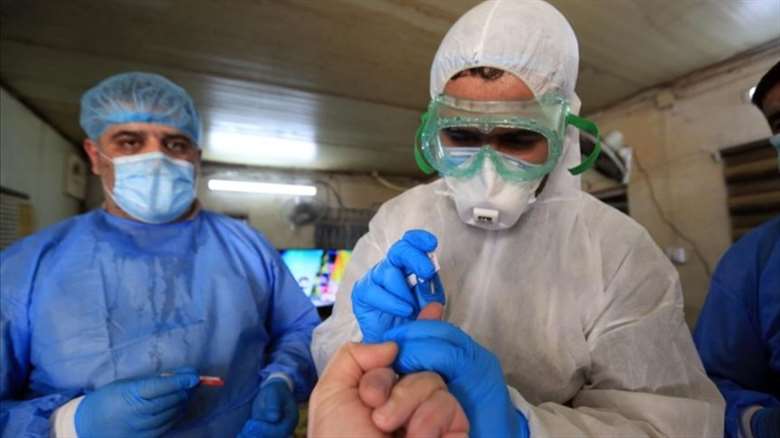COVID-19: Iraq confirms over 4,000 new cases; WHO warns of 'major' crisis

ERBIL (Kurdistan 24) – The Iraqi Ministry of Health and Environment announced on Wednesday that it had recorded more than 4,000 new infections and 85 new deaths from the coronavirus during the past 24 hours.
In its daily epidemiological statement, the ministry said that health workers had conducted just over 20,000 coronavirus tests during that time, with 4,093 of them coming back positive. This makes for a total of 1,345,459 tests carried out since the first case within Iraq was confirmed in February.
So far, 188,802 patients have contracted the highly-contagious disease. Of these, 6,121 have died and 48,312 are still receiving treatment.
Today's federal figures do not include the most recent developments in the autonomous Kurdistan Region, which has its own health ministry and typically announces results later in the day. As such, Kurdistan's figures are usually added to the following day's national tally.
Read More: COVID-19: Kurdistan Region reports over 440 new cases, 22 fatalities
Earlier on Wednesday, the World Health Organization (WHO) warned of a "major" health crisis in Iraq in light of the increasing number of coronavirus cases, though it added that Iraqis can still defeat the epidemic through a serious commitment to following preventive measures such as wearing face masks, social distancing, and avoiding mass gatherings altogether.
The statement also noted that the current spread of the epidemic has added new challenges to an already fragile health system that has been weakened by years of conflict and poor governance. “Despite the limited capabilities of this system, the rapid and effective response to the epidemic by the health authorities, especially at the beginning of its spread during the first few months, was commendable.”
“However, the situation in the past months has deteriorated due to many factors, including the easing of restrictions imposed by the Iraqi authorities and the failure to adhere to the preventive measures or implement them by force,” the statement added.
The WHO and other United Nations agencies have conducted a risk assessment of events resulting in mass gatherings in Iraq, focusing on the likelihood that such behavior has been the main cause of both importing the disease into the country and spreading it through the provinces, as well as the country's ability to manage and control outbreaks.
The study concluded that public health risks “increase significantly on occasions with close human contact in crowded places.”
“The World Health Organization believes that avoiding mass gatherings and wearing masks while maintaining social distancing and adopting the practice of frequent hand washing can significantly reduce the rate of transmission of COVID-19 disease by 57 percent and 30 percent, respectively, at the very least,” it added.
Editing by John J. Catherine
